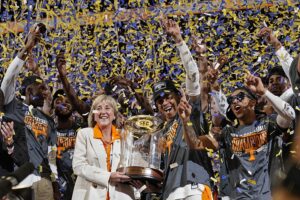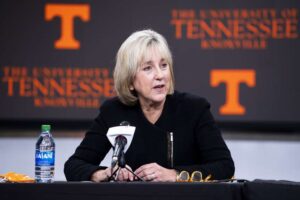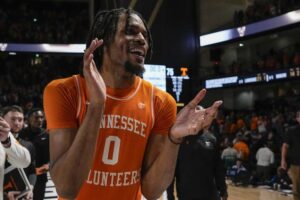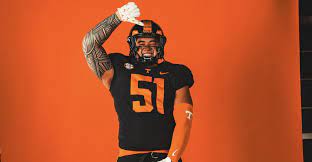The NCAA’s ban on the use of name, image, and likeness pay in recruiting collegiate athletes and in reaction to the association’s University of Tennessee probe were both challenged by the attorneys general of Virginia and Tennessee in an antitrust complaint filed on Wednesday.
The lawsuit filed in the Eastern District of Tennessee seeks to undercut NCAA rules against recruiting inducements and claims the association is “enforcing rules that unfairly restrict how athletes can commercially use their name, image and likeness at a critical juncture in the recruiting calendar.”

“These anticompetitive restrictions violate the Sherman Act, harm the States and the welfare of their athletes, and should be declared unlawful and enjoined.”
Tennessee AG Jonathan Skrmetti and Virginia’s Jason Miyares followed up by asking the court for a temporary restraining order and preliminary injunction by Feb. 6 that would prohibit the NCAA from enforcing NIL recruiting rules while the lawsuit plays out.
The NCAA released a statement that did not directly address the Tennessee investigation, but did defend enforcement of recruiting rules — which are made by member schools.

“This legal action would exacerbate what our members themselves have frequently described as a ‘wild west’ atmosphere, further tilting competitive imbalance among schools in neighboring states, and diminishing protections for student-athletes from potential exploitation,” the NCAA said. “The NCAA remains firmly committed to protecting and expanding student-athletes’ NIL rights and opportunities. However, our membership has steadfastly supported the prohibition on impermissible recruiting contacts, booster involvement in recruiting prospects and the use of NIL offers as recruiting inducements.”
The latest legal attack on the NCAA came a day after the University of Tennessee’s chancellor ripped the association for investigating the school for potential recruiting violations related to NIL deals struck between athletes and a booster-funded and run organization that provides Volunteers athletes a chance to cash in on their fame.
The NCAA already is facing a lawsuit by a group of state attorneys general challenging the association’s transfer rules, plus it is the defendant in antitrust suits targeting employment status for athletes and billions in television revenue that schools and conferences make off big-time college sports.

NCAA President Charlie Baker and college sports leaders have been pleading for federal lawmakers to regulate NIL compensation and provide an antitrust exemption that would allow the association to govern without constantly being dragged into the court.
Earlier this month, the NCAA approved a set of NIL regulations aimed at creating transparency in the market for athletes and protecting them from potential bad actors.
Meanwhile, Baker also is pushing for rule changes that would allow schools to bring NIL activities in-house and even allow some schools to directly pay their athletes through trust funds.
On Tuesday, it was revealed the NCAA was investigating Tennessee and The Vol Club, an NIL collective run by Spyre Sports Group. Tennessee’s recruitment of five-star quarterback Nico Iamaleava from California and his NIL contract with Spyre is among the deals receiving scrutiny from the NCAA.
Tennessee Chancellor Donde Plowman wrote a scathing letter to Baker shortly after school officials met with NCAA representatives to discuss the allegations earlier this week. She said leaders of collegiate sports owe it to students and their families to act in their best interest with clear rules — and the NCAA is nowhere close to providing that.
“Instead, 2 1/2 years of vague and contradictory NCAA memos, emails and ‘guidance’ about name, image and likeness (NIL) has created extraordinary chaos that student-athletes and institutions are struggling to navigate,” Plowman wrote in the letter released Tuesday. “In short, the NCAA is failing.”


